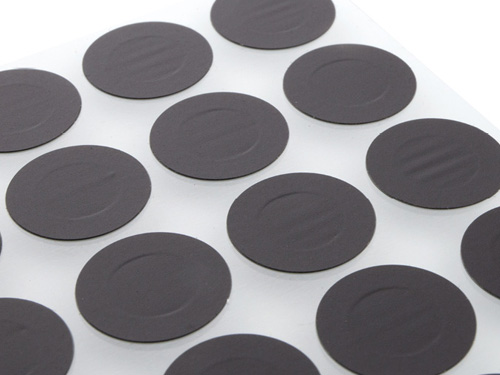Focus on PUW EPTFE Material Co., Ltd - Get to know the new information of the industry quickly!

2025-06-13 13:43:05
With the growing demand for protective fabrics and sealed electronic enclosures, Waterproof Breathable Membranes have become an essential component in various industries—from medical wear and outdoor gear to automotive electronics and battery enclosures. While the market is flooded with different types of breathable membranes, the quality and performance of these materials depend largely on the manufacturing process.
In this article, we explore the three major methods of producing Waterproof Breathable Membranes, highlight their key differences, and offer guidance for selecting reliable materials—especially in high-demand applications.

This is one of the most basic and low-cost methods. In this technique, plastic pellets are melted and extruded directly onto a nonwoven substrate, relying solely on the plastic's inherent viscosity to form a thin film.
Advantages: Simple and cost-effective for mass production.
Disadvantages: Extremely low air permeability.
The result is often a laminated film that is more water-resistant than breathable, making it unsuitable for applications requiring true vapor transmission.
Currently, this process cannot produce genuinely high-breathability waterproof membranes.
Widely used in the hygiene industry (e.g., sanitary napkins, diapers) and protective clothing, this process involves applying hot melt adhesive (e.g., pressure-sensitive glue) to bond the breathable film to a substrate.
Advantages: Low cost, easy processing, flexible substrates.
Disadvantages: The membrane's integrity heavily depends on the glue’s long-term stability.
Over time, delamination may occur due to glue aging, especially under heat and humidity.
Hence, such membranes are often counterfeits or inferior alternatives to genuine waterproof breathable materials.
This is the most reliable and high-performance method used to create genuine waterproof breathable membranes. Thermal lamination involves bonding the membrane layer to the carrier fabric using controlled heat and pressure, without additional adhesives.
Advantages:
High air permeability
Excellent waterproof performance
Durability under high temperature and mechanical stress
Long-lasting aging resistance
Disadvantages: Higher production costs and technical requirements.
In China, only a few manufacturers can master this process to produce authentic high-performance membranes that meet global industrial standards.
When evaluating membranes, look for the following performance criteria:
High water resistance (hydrostatic pressure test)
Strong air permeability (measured in ML/min@kPa)
Thermal stability (suitable for automotive and outdoor use)
UV and chemical aging resistance
Long-term lamination durability (no delamination or glue aging)
As a high-tech enterprise integrating R&D, production, and sales, PUW is committed to advancing breathable material technology. The company introduces world-class equipment and specializes in the development of expanded polytetrafluoroethylene (EPTFE) membranes—a gold standard in waterproof and breathable applications.
PUW membranes are used in:
New energy battery pack protection
Electronics venting systems
Automotive sensor housings
Medical device enclosures
Outdoor equipment and apparel
Advanced ePTFE lamination technology
Reliable IP-rated membrane vents
Custom engineering support for unique applications
Proven durability in extreme environments
Not all breathable membranes are created equal. While casting and glue-laminated membranes dominate the lower end of the market, heat-pressed membranes made with ePTFE or similar high-performance materials remain the gold standard for true waterproof breathability. When safety, durability, and environmental performance matter, choosing a membrane from a qualified supplier like PUW ensures long-term reliability and compliance.

Telephone: 0769-22850556
Email: lvch@puw-eptfe.com
Address: No.20, Wanjiang Industrial Street, Wanjiang District, Dongguan City, Guangdong Province, China
© 2026 PUW EPTFE Material Co., Ltd. All rights reserved.
Privacy policy | Terms and Conditions